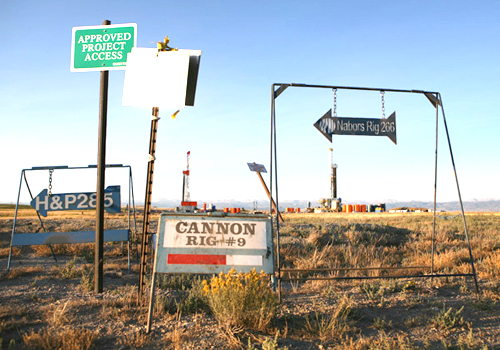Fracking Lawsuit Filed in California Against State Agency
 Earthjustice filed a lawsuit two days ago in Alameda County Superior Court on behalf of four environmental plaintiffs charging that the California Department of Conservation, Division of Oil, Gas, and Geothermal Resources (DOGGR) has failed to consider or evaluate the risks of fracking, as required by the California Environmental Quality Act (CEQA).
Earthjustice filed a lawsuit two days ago in Alameda County Superior Court on behalf of four environmental plaintiffs charging that the California Department of Conservation, Division of Oil, Gas, and Geothermal Resources (DOGGR) has failed to consider or evaluate the risks of fracking, as required by the California Environmental Quality Act (CEQA).
Plaintiffs — the Center for Biological Diversity, Earthworks, Environmental Working Group and Sierra Club — seek declaratory and injunctive relief in their challenge to DOGGR’s cited practice of approving permits for oil and gas wells after exempting such projects from environmental review under CEQA or issuing negative declarations finding no significant impacts from these activities.
In order to drill an oil or gas well in California, permits are typically needed from both DOGGR and a local agency. Additional permits may also be needed from the U.S. Bureau of Land Management (for drilling on federal lands) or the State Lands Commission (for drilling on state lands). DOGGR was granted primary authority by EPA under the federal Safe Drinking Water Act to regulate Class II underground injection wells, which includes wells used for enhanced oil recovery or to dispose of wastewater associated with oil and gas production.
An industry-operated website, FracFocus, currently lists 459 wells in California that have been fracked since January 1, 2011.
CEQA requires each state agency to prepare an Environmental Impact Report (“EIR”) when it proposes to approve or carry out a discretionary project that may have a significant impact on the environment, and to mitigate or avoid those significant impacts whenever feasible to do so. (Pub. Res. Code §§ 21002.1, 21061). Where an agency determines that a proposed project would not have a significant effect on the environment, it must adopt a “negative declaration” to that effect.
In some circumstances, an agency project approval may be exempt from CEQA review if it falls within one of the “categorical exemptions” enumerated in CEQA’s implementing regulations. These exemptions are intended to apply to projects that fall within a predefined type of activity that have been analyzed and determined not to have a significant effect on the environment.
According to the complaint, DOGGR has never prepared an EIR when issuing permits for oil and gas wells in California. Its approval of more than 38 projects for oil and gas wells since 2011 has followed the issuance of either (1) a Notice of Exemption from the requirements of CEQA based on a categorical exemption for “Minor Alterations to Land” in Cal. Code Regs. tit. 14, § 15304, or (2) a Negative Declaration or Mitigated Negative Declaration finding that such projects will not have a significant effect on the environment. Plaintiffs contend that these exemptions and negative declarations do not apply to fracking wells, and that the agency must prepare an EIR before approving such projects.
In response to a Public Records Act request in early 2012, DOGGR sent Plaintiffs’ attorneys a letter stating that it “does not specifically track or monitor the practice of hydraulic fracturing, on a well-by-well basis or otherwise,” and that “oil and gas operators are not required to notify [DOGGR] of planned or projected hydraulic fracturing operations.”
Tim Kustic of DOGGR has stated that the department is moving forward to adopt and implement new rules. The agency has already held seven public hearings on the proposed new regulations and it will continue to hold more hearings around the state.
Reader Comments
8 Replies to “Fracking Lawsuit Filed in California Against State Agency”
Comments are closed.





good luck, i hope they win!
http://wp.me/p2mS6O-ih
good luck, i hope they win!
http://wp.me/p2mS6O-ih